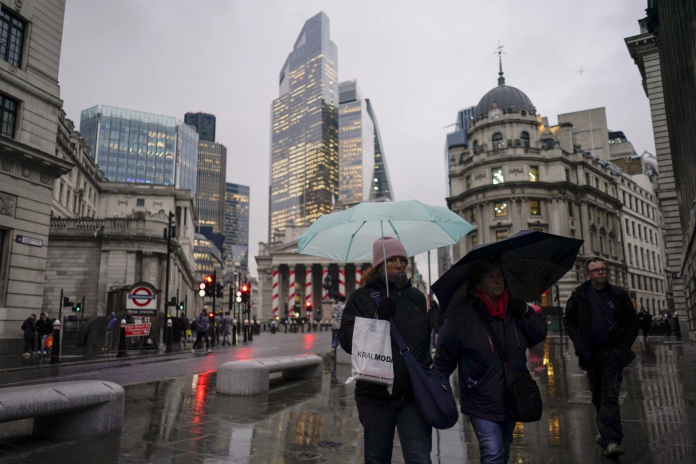UK inflation jumped above the Bank of England’s 2% target, with core price growth accelerating as well, according to Reuters.
Consumer prices rose 2.3% in October, helped by an increase in domestic energy tariffs after rising 1.7% in September. The latest BoE forecast and a Reuters poll of economists pointed to a weaker Consumer Price Index (CPI) at 2.2%.
Meanwhile, sterling strengthened by almost a third of a cent against the US dollar following the data release before giving back most of that gain. Interest rate futures priced in a slightly slower pace of rate cuts, with bond prices falling.
The rise lifted inflation to a six-month high and was the biggest monthly increase in annual CPI since inflation peaked in October 2022. Service price inflation, which the BoE saw as a key indicator of domestic price pressures, rose to 5.0% in October from 4.9% in September, the Office for National Statistics said.
However, core inflation, which excludes energy, food, alcohol and tobacco prices, rose to 3.3% from September’s 3.2%, missing market expectations. The BoE also said this month it expected overall inflation to rise to 2.4% and 2.5% in November and December.
The Bank said the first budget of the new UK government would likely boost inflation next year. Moreover, US President-elect Donald Trump’s threat to impose high import duties is adding uncertainty to the economic outlook.
Prime Minister Keir Starmer’s new government pledged to boost UK economic growth but was criticised by employers over the higher employment taxes they would have to pay from April next year. There is also upward pressure on prices from the labour market, where many employers are facing a shortage of candidates.
Meanwhile, yields on two-year UK government bonds, which are sensitive to interest rate speculation, rose about 4 basis points.
